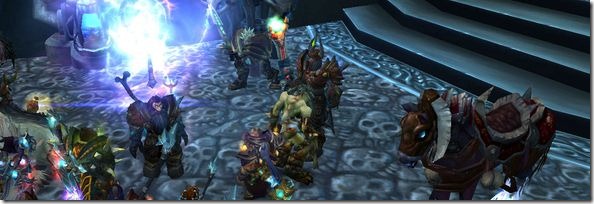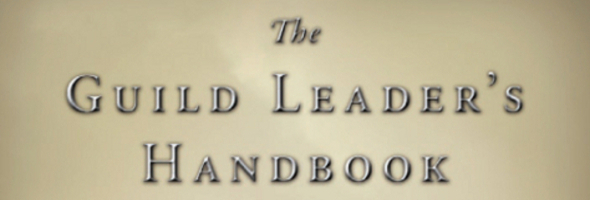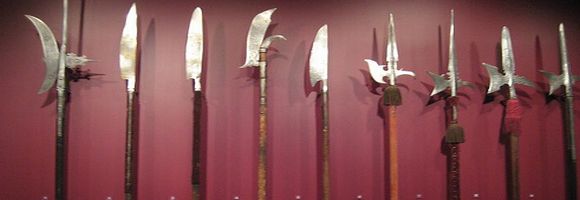This might end up being one of the longest and most in depth posts you’ll ever read here about the loot council system. I tweeted a couple of weeks ago asking if people would be interested in an example of what happens to go on behind the scenes when loot is being decided. A resounding number said yes!
Took me about 7+ hours to conceptualize, write, and edit this one. Thanks to my guys for their help and suggestions.
What is loot council?
It is basically a group of players who decide which items go to which player when they drop in a raid. And before you say anything, yes it is entirely prone to favoritism. And yes, it is possible for it to be corrupt. Keep in mind though, the effectiveness of loot council is entirely dependant on your loot council. If they are nothing more than sniveling, selfish players who award loot only to themselves, then yes that is a problem. But if your loot council has progression first and foremost in mind, then it’ll work out in the end.
It’s not about being fair
A lot of players make the case that it isn’t fair.
You’re absolutely right.
Loot council is not designed to be fair.
In fact, it is far and away the worst system when it comes to fairness. Fairness is going to very by player and by situation. If a really awesome trinket drops, does it go to the new player who’s still using that 219 trinket who just joined the guild? Or does it go to the veteran who wants to replace his 264 trinket with a slightly upgraded version? Strong cases could easily be made for both. You could argue that that the new player would benefit the most from it as its the biggest upgrade for him (and consequently, overall raid DPS would increase). On the other hand, it could be used as a reward for the veteran for his consistent attendance and performance and that he deserves it (and has a higher chance of it sticking around in the guild as opposed to someone taking it and leaving).
When I pick out my council, I give them free reign on names and selections. They can only pick from the players who have listed themselves. They don’t have to give reasons for their judgments. Ultimately though, the one criteria I instill upon them is to do what’s best for the guild. If it means awarding a freshly minted player who just joined the guild with a trinket, that’s okay. If it means handing it off to a veteran, that’s okay too.
Every case is unique. We don’t operate on precedent because we can’t afford to “handcuff” ourselves in that manner.
Who is on it?
I try to maintain a fairly balanced class composition on the LC. It looks something like:
- Healer
- Tank
- Melee DPS
- Ranged DPS
- Other (Usually another ranged DPS, but it varies)
For me, the two criteria it takes to sit on it are both:
a) Basic knowledge of other classes and what’s desirable stats for them
b) Actually wanting to be on it
A surprising number of players I’ve approached over the 2 years have said they were hesitant to sit on it because they weren’t sure if they wanted that pressure or that power. I don’t want a player that screams “PICK ME PICK ME PICK ME”, I try to go after players who are willing to do it but are fine if they don’t.
If there’s some sort of bias detected, that council member is restricted from voting. For example, if someone’s fiancé or girlfriend or brother is up for an item, that council member would not be allowed to say anything. They can provide advice or notes, but that’s it. When that happens, an officer steps in temporarily and takes their spot. The same thing happens if it’s an item that a loot council member wants: They’re not allowed to vote (unless they pass). We try to minimize the obvious biases as best as possible.
Confused? Not every loot council member is an officer, that’s why an officer can periodically make a decision to fill in.
Loot council usually rotates after a month to several months depending on a number of things (Where we’re at in progression, boredom, “freshness” factor, etc).
Members have a say too!
In 80% of the loot decisions, we don’t actually have to come to a ruling. Back when we formed, Syd and I added a slight twist allowing our members to decide if something truly is an upgrade for them or not. Check out my macro:
LOOT OPTIONS
Int = You want and is a main spec upgrade
Pass = You want it, but can afford to wait or will not be using right away
Off = Off spec item
Say nothing = No interest in item
Yes, it’s tiered. Saying Interested signifies immediate desire and that it’s usable. Saying pass means you want it, but you won’t be able to use it until you get another piece of gear (like hit rating adjustments) or its a relatively minor upgrade (going from a 251 level item to a 264).
Anyway, I’ll give you a few of the loot scenarios and some of the decisions that I made. Keep in mind, there’s 5 of us. When someone says they want something though, we’ll ask them to link the current item that they wish to replace.
Give you an example:
[Coldwraith Links] has dropped.
Loot Master: 5
DPS warrior: Int [Vengeful Noose]
Loot Master: 4
Death Knight 1: Int [Coldwraith Links]
Death Knight 2: Int [Coldwraith Links]
Loot Master: 3
Loot Master: 2
Death Knight 3: pass
Loot Master: 1
Ret Pally: pass
Loot Master: –
Right off the bat, we’ll strike Death Knight 3 and our Ret Pally off the list. They both want it, but for whatever reason, they’re willing to wait or not able to use it (or are just being generous because maybe they’ve gotten a bit of upgrades that week). This case is one of the tougher ones we’ve had to deal with because all 3 partys’ could make a strong case for themselves.
But it’s easy in that since any of them could use it, the whole guild would benefit anyway regardless of who got it. I’m thinking big picture at this point. If memory serves, I think we gave it to Death Knight 2 because Death Knight 1 had gotten something earlier that night or that week. Honestly, it was a coin toss between the Death Knight and the Warrior.
Let’s do a tier example.
Conqueror’s Mark of Sanctification
Holy Priest – Int (42 badges) – Has no tier piece
Shadow Priest – Int (33 badges) – Has 1 tier piece (Shoulders), 251
Prot Paladin (off tank) – Int (60 badges) – Has no tier piece
Warlock – Int (60 badges) – Has 1 tier piece (Legs), 251
Ret Pally – Int (55 badges) – Has 1 tier piece, (Shoulders) 264
Let’s travel back in time a few months where tier tokens were still relatively new and not many players had tier pieces equipped yet. When it came to tier, we looked at factors like the amount of Emblems they had. We also wanted to know if they already had the 251 level tier pieces. We also had a quick chat with the players to really figure out which set bonuses were okay and which set bonuses were jaw droppingly awesome. Our mindset with tier is that we knew it would be a constant drop rate. We wanted to try to spread it out as much as possible. It was up to the raiders themselves individually to do dailies or whatever they could to get as much Frost Emblems as they could. Over a span of several weeks, our accessibility to tier would increase anyway. It was our job to determine who got what tier first.
Keep in mind, at the time Saurfang was the only boss who dropped tier at the time.
The first thing we looked at was how quick the token could be spent and used. The Shadow Priest would have been able to upgrade their tier shoulders immediately. The Holy Priest would need another week or two to purchase the 251. The Prot Paladin would also benefit and has not bought any tier yet. The Ret Pally already received one from the week before, striking her from the list. It would’ve been a tough call between the Warlock and the Prot Paladin. For me personally, I would’ve awarded it to our Warlock. It gives him immediate access to a 264 piece and a 2 piece with the shoulders.
Conqueror would drop again and it would’ve been pretty easy to “map” out the next few drops anyway.
Phylactery for the Nameless Lich (heroic)
Loot Master: 5
Shadow Priest: Int Phylactery of the Nameless Lich
Loot Master: 4
Warlock: Int Muradin’s Spyglass
Mage: Int Eye of the Broodmother
Loot Master: 3
Loot Master: 2
Loot Master: 1
Shadow Priest: pass
Loot Master: –
Here’s some background information. Both the Warlock and the Mage joined the guild the same day. The Shadow Priest has been around for 9 months as a regular raider. Our Shadow Priest notices the trinkets the other two are using and realizes it would be a better upgrade for the other two and decides to withdraw his name from consideration. Seeing as the Mage and Warlock are new and that extensive notes have been taken so far on their performance. The Warlock has been performing extremely well with top 5 finishes on most boss fights. The Mage is about average to below average (10th-15th with massive fluctuations). Unfortunately, the Warlock was mind controlled on Blood Queen because his target had already been bitten. In terms of drops, the Warlock had received no items that night and the Mage received both a Vanquisher token and a neck upgrade (both immediately used).
It’s now down to the battle of the recruits.
This is one of those “investment” type calls. Who are we most likely to keep? Who is most likely to go? We don’t know. It’s difficult to gauge that especially on a day 1 (a little easier after week 1). Do we give it to the Warlock as a reward so far for his efforts (except for the blown bite)? Or do we give it to the Mage to escalate his gear further? We’re aware that his DPS isn’t as high as the rest and it would really bring it in line. But he already received two items that night.
Those were just some of the questions that ran through my head. Ultimately, the Phylactery would’ve been an upgrade for either of the two. And for me, I would’ve sided with the Warlock just for the sake of even distribution.
Heroic Solace of the Defeated
Holy Priest – Int – Heroic Althor’s Abacus, Glowing Twilight Scale
Disc Priest – Int – Talisman of Resurgence, Glowing Twilight Scale
Resto Shaman – Int – Heroic Althor’s Abacus, Purified Lunar Dust
Resto Druid – Int – Ephemeral Snowflake, Heroic Althor’s Abacus
Resto Druid 2 – Int – Ephemeral Snowflake, Talisman of Resurgence
Holy Paladin – Int – Sliver of Pure Ice, Althor’s Abacus
Let’s try some healing trinkets. They are one of the biggest headaches in the game due to the number of players that want them when they drop. For me, when a player gets two powerful trinkets, I cut them off for the rest of the expansion. Again, I want to minimize the number of wasted drops. No point for us giving a trinket to one person only for them to replace it the week after when another player also could have benefited from it.
Here’s the information:
The Holy Paladin is entering finals for law school. He’s already declared that he will not be able to show up for the next 3 weeks. The Resto Druid received his Abacus earlier that week.
Ugh, tough decisions. The Holy Priest is just being plain greedy, so he gets struck. He’s already using trinkets that will last him the length of the expansion (probably that Matt guy who wants it, greedy bastard). The Holy Paladin could also put it to good use, but it won’t be effective for the next 3 weeks. The Resto Druid already got something that week, he’s out. Resto Druid 2 missed out on 2 straight progression raids without letting anyone know. Now it’s down to the Disc Priest and the Resto Shaman.
Looking across the board and seeing how everyone (and their mother) seems to already have an Althor’s Abacus, I’d award it to the Resto Shaman. The Disc Priest could benefit from an Abacus or a Solace. The Resto Shaman could use the Solace and then be done for trinkets for the expansion. It’s a narrow decision, but it ultimately gets awarded to the Resto Shaman because the Disc Priest trinkets could be completed with any of the 2 above options.
Final thoughts
Generally, most items take seconds to resolve. The ones that take the longest end up being:
Those take the longest because many classes have vested interest. Look at an item like the Ring of Rapid Ascent. It’s one of the top items by practically everyone (casters and healers).
Granted, we do make mistakes. For every 4 or so good loot decisions we make, there’s a bad one that bites us in the ass. A Glowing Twilight Scale was handed off to a Paladin because no other healers wanted it at the time. He left after 2 weeks. We passed a Deathbringer’s Will to a feral Druid who had been a long standing member of the guild before he departed to try his hand at a higher progression guild. Since the inception of the guild, we’ve had over 115 players contribute to the success of our raids and for various reasons, they have dropped out and retired (Getting married, moving, getting yelled at by SO for too much WoW time, school, work, etc).
I have never had a single player leave and cite the reason for their departure as “unfair loot system”. We have a strong recruiting process and players that (we think) are self-centered when it comes to drops don’t usually make it past week 1.
It takes a dedicated and unique organization to make this loot system work. Everyone needs to be onboard with it and absolutely must buy into the system. That’s the reason it works. It’s because players understand it isn’t always about loot.
In the event the council is evenly split or unable to come to a decision (say an item benefits 4 people on the council and they all want it), then any officers present will make the call. If it’s a 5 way split (which rarely happens), another officer is asked to make a pick so that it becomes a 2-1-1-1-1 decision. Lastly, for anything that cannot easily be decided, I invoke what’s called the Matt clause. It usually happens if there’s a number of loot council players or officers who are either absent or unable to vote. If that occurs, I make the decision regardless of whether I can vote or not. If I’m not present, that falls to the raid leader, then the main tank, and on down the chain of command until its resolved.
Remember, we have a raid to run and bosses to kill. We can’t spend all that time debating. Unless it’s a Deathbringer’s Will, it’ll drop again.
We’re not completely infallible. Just like referees, we make bad calls too. But hey, this system isn’t for everyone. But it definitely works for us (we took down heroic Putricide last week on 25 man, and that guy was a nut case).
While I suspect a number of you won’t agree (and will continue to disagree) with this system, I hope this post has at least shed some light on how a guild could do the job. I know of a guild where a Shaman immediately LC’s mail gear to himself for all 3 specs. It’s unfortunate that cases like that happen, but they do exist. I wanted to write this to illustrate that not every guild or loot council is corrupt (at least, not intentionally).




